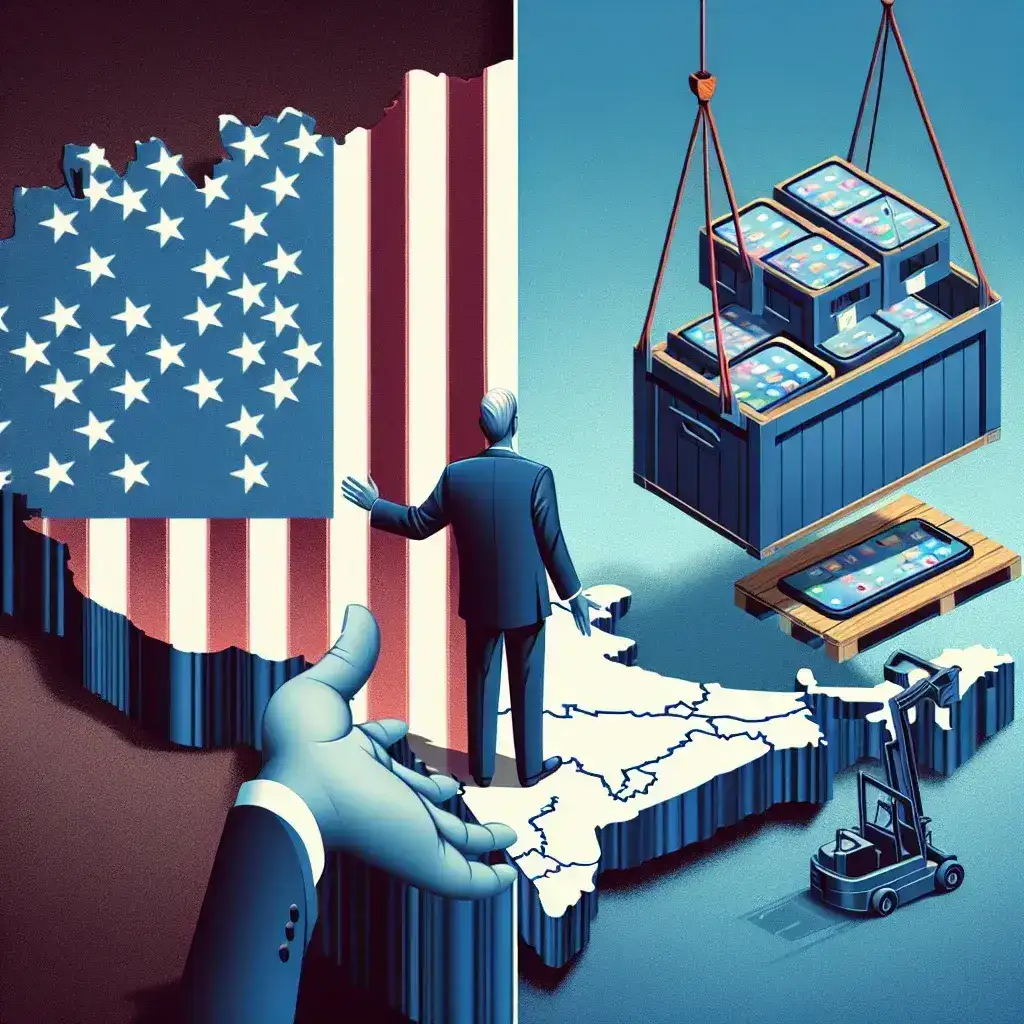Introduction
In a bold statement that sent ripples through the tech industry, former President Donald Trump recently urged Apple to relocate its iPhone production from India back to the United States. This request is not merely a suggestion; it underscores a growing sentiment among American political leaders who prioritize domestic manufacturing and job creation. The implications of such a move could be profound for both Apple and the global economy.
Historical Context
Apple’s decision to expand its manufacturing footprint in India began in earnest around 2017, driven by the desire to tap into the burgeoning Indian market and reduce dependency on Chinese manufacturing. India offered a favorable environment with its large workforce, competitive labor costs, and government incentives aimed at boosting local production.
Shifting Dynamics in Global Manufacturing
However, the global landscape has shifted dramatically in recent years. Trade tensions between the U.S. and China, coupled with the COVID-19 pandemic, have illuminated the vulnerabilities in supply chains. Trump’s call to bring production back to the U.S. reflects a growing realization that resilience in manufacturing is vital for national security.
Trump’s Argument for Relocation
Trump’s argument centers on several key points:
- Job Creation: Moving iPhone production back to the U.S. would create thousands of jobs in manufacturing, contributing to the economic revival.
- National Security: Reducing reliance on foreign manufacturing could enhance the U.S.’s self-sufficiency, particularly for critical technologies.
- Economic Growth: Increased domestic production could spur growth in associated sectors, from logistics to retail.
Pros and Cons of Moving Production
Pros
- Job Opportunities: The U.S. could see a substantial increase in manufacturing jobs, helping to reduce unemployment rates.
- Innovation Hub: Bringing production home may foster innovation as companies collaborate more closely with domestic suppliers.
- Patriotism: A move to U.S. production could resonate with consumers, bolstering brand loyalty among those who prioritize American-made products.
Cons
- Higher Costs: Manufacturing in the U.S. typically incurs higher labor and operational costs compared to India.
- Logistical Challenges: Adjusting existing supply chains to accommodate this shift could be complex and disruptive.
- Political Uncertainty: Future changes in administration policies could impact ongoing initiatives and investments.
Future Predictions
The future of Apple’s production strategy hinges on various factors, including global economic conditions, political climates, and consumer trends. If the demand for U.S.-made products continues to grow, Apple may find compelling reasons to invest in domestic production capabilities.
Potential Impact on American Economy
If Apple were to shift production back to the U.S., it could ignite a domino effect across the tech industry. Other companies might follow suit, leading to increased competition for skilled labor, investment in manufacturing technologies, and heightened emphasis on sustainability practices.
Expert Opinions
Industry experts have diverse views on Trump’s proposal. Some argue that while his intentions may be noble, the reality of manufacturing logistics complicates the feasibility of such a move.
Quote from Economists
“While the call for domestic production is valid, the transition will take time and significant investment. Companies must weigh the benefits against the practical challenges of reshoring,” says Dr. Jane Smith, an economist specializing in manufacturing trends.
Cultural Relevance
The discussion surrounding the relocation of iPhone production taps into broader cultural themes in the U.S. As consumers increasingly express a desire for ethically produced goods, companies face pressure to demonstrate social responsibility and align with these values. Apple’s response to Trump’s call will likely be scrutinized not only for its economic implications but also for its cultural resonance.
Conclusion
President Trump’s urging of Apple to move iPhone production from India to the U.S. highlights significant discussions about manufacturing, job creation, and national security. As the tech giant evaluates the feasibility of such a transition, stakeholders across the industry will be watching closely. The outcome may set a precedent for other companies considering similar moves and will undoubtedly influence the future of American manufacturing.
Call to Action
As we navigate this evolving landscape, it is crucial for consumers, policymakers, and industry leaders to engage in dialogue about the future of manufacturing in the U.S. How do you feel about the potential move of iPhone production back to American soil? Join the conversation and share your insights.

